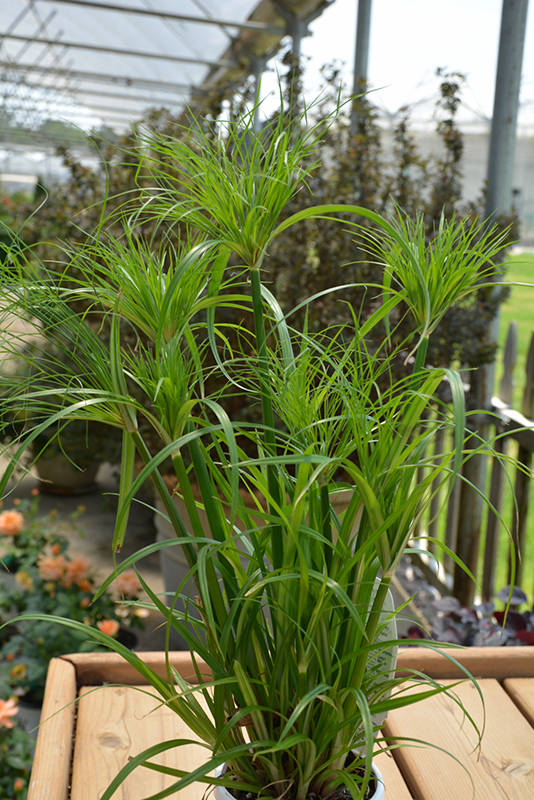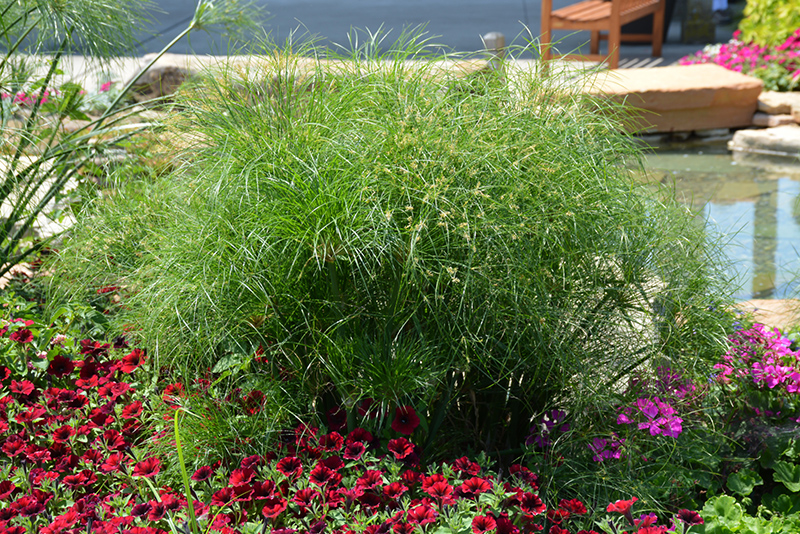Height: 3 feet
Spread: 3 feet
Sunlight:
![]()
![]()
Hardiness Zone: (annual)
Other Names: Dwarf Egyptian Papyrus
Description:
This variety is a semi-aquatic, grass-like plant producing towering green stems with green bracts; perfect for pond side planting or in moist gardens; doesn't mind being submerged a few inches
Ornamental Features
Prince Tut Egyptian Papyrus' attractive grassy leaves remain green in colour throughout the season on a plant with an upright spreading habit of growth.
Landscape Attributes
Prince Tut Egyptian Papyrus is an herbaceous annual with an upright spreading habit of growth. Its relatively fine texture sets it apart from other garden plants with less refined foliage.
This is a relatively low maintenance plant, and is best cleaned up in early spring before it resumes active growth for the season. It has no significant negative characteristics.
Prince Tut Egyptian Papyrus is recommended for the following landscape applications;
- Mass Planting
- General Garden Use
- Water Gardens
- Container Planting
- Bog Gardens
Planting & Growing
Prince Tut Egyptian Papyrus will grow to be about 3 feet tall at maturity, with a spread of 3 feet. It tends to be leggy, with a typical clearance of 1 foot from the ground, and should be underplanted with lower-growing perennials. Although it's not a true annual, this fast-growing plant can be expected to behave as an annual in our climate if left outdoors over the winter, usually needing replacement the following year. As such, gardeners should take into consideration that it will perform differently than it would in its native habitat.
This plant does best in full sun to partial shade. It prefers to grow in moist to wet soil, and will even tolerate some standing water. It is not particular as to soil type or pH. It is somewhat tolerant of urban pollution. This particular variety is an interspecific hybrid. It can be propagated by division; however, as a cultivated variety, be aware that it may be subject to certain restrictions or prohibitions on propagation.
Prince Tut Egyptian Papyrus is a fine choice for the garden, but it is also a good selection for planting in outdoor pots and containers. With its upright habit of growth, it is best suited for use as a 'thriller' in the 'spiller-thriller-filler' container combination; plant it near the center of the pot, surrounded by smaller plants and those that spill over the edges. It is even sizeable enough that it can be grown alone in a suitable container. Note that when growing plants in outdoor containers and baskets, they may require more frequent waterings than they would in the yard or garden.


